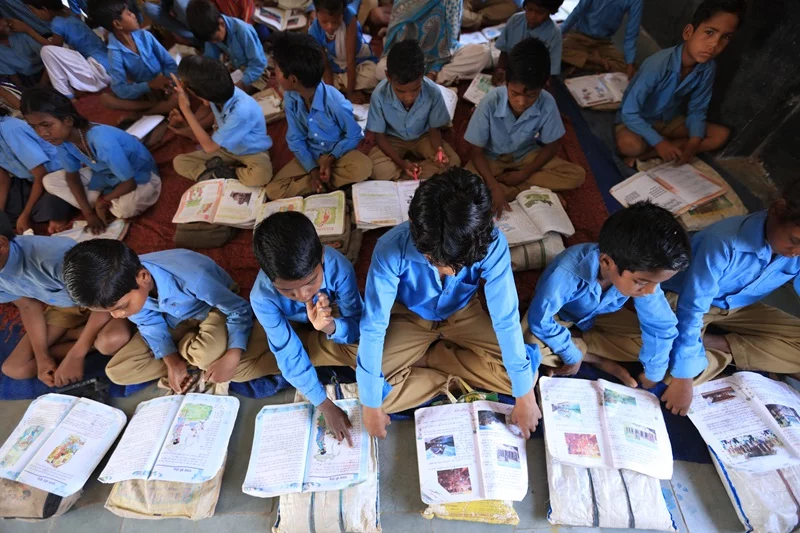Analysis of challenges and opportunities in rural education: from infrastructure limitations to technological innovation.

The educational reality in rural environments: a complex panorama
Education in rural contexts represents one of the most significant challenges for contemporary education systems. Globally, approximately 800 million people live in rural areas, where educational opportunities face structural, geographic, and socioeconomic limitations that demand innovative pedagogical approaches and differentiated educational policies.
Rural contexts are characterized by their geographic, cultural, and socioeconomic diversity, which generates a mosaic of educational realities that require in-depth understanding and adapted strategies. From farming communities in Latin America to pastoralist populations in Africa, each rural context presents specific characteristics that directly influence teaching and learning processes.
Main challenges of rural education
Infrastructure and resource limitations
Poor educational infrastructure is the first significant obstacle. Many rural schools lack basic services such as electricity, drinking water, and internet connectivity, essential elements for quality education in the 21st century. This situation is exacerbated by geographic dispersion, which makes both student access and the maintenance of educational facilities difficult.
Limited teaching resources represent another significant barrier. The scarcity of up-to-date teaching materials, equipped libraries, and educational technology directly impacts the quality of the educational process, creating significant gaps compared to urban institutions.
Teaching and pedagogical challenges
Teacher availability and training constitute a critical challenge. Educators in rural settings frequently face multi-grade classrooms, where they must simultaneously serve students from different educational levels. This reality demands specialized pedagogical skills that are not always included in initial teacher training.
- Difficulties in attracting and retaining qualified teachers
- Need for continuous training adapted to multi-grade contexts
- Professional isolation and limited development opportunities
- Work overload due to additional administrative responsibilities
Socioeconomic and cultural factors
Socioeconomic factors exert a determining influence on rural education. Poverty, child labor, and family economic hardship can disrupt or limit students’ educational trajectories. Furthermore, cultural and linguistic differences in indigenous or ethnic minority communities require intercultural educational approaches that respect and value diversity.
Emerging opportunities in rural education
Technological innovation and connectivity
The digital revolution is transforming educational opportunities in rural contexts. The expansion of internet connectivity and the development of digital educational platforms open up new opportunities to access quality content, specialized resources, and diverse learning experiences.
Mobile technologies have become powerful tools for rural education. Mobile devices allow access to educational content, online assessments, and constant communication between students, teachers, and families, overcoming traditional geographical limitations.
Contextualized pedagogies and meaningful learning
Rural contexts offer unique opportunities for meaningful learning. The direct connection with the environment, agricultural and livestock activities, and local cultural traditions provides valuable pedagogical resources that can be integrated into the curriculum to enrich the educational process.
- Development of educational projects based on local reality
- Integration of traditional knowledge with academic knowledge
- Promotion of rural entrepreneurship and agricultural innovation
- Strengthening cultural identity and sense of belonging
Flexible and inclusive educational models
Curricular flexibility emerges as a key opportunity to adapt educational processes to rural realities. Alternative education models, such as adapted agricultural calendars, alternating learning methodologies, and non-formal education programs, demonstrate the potential for creating more inclusive and relevant education systems.
Strategies for rural educational transformation
Specialized teacher training
Specialized teacher training in rural contexts requires specific approaches that consider the pedagogical specificities of these environments. Training programs should include competencies in multi-grade pedagogy, intercultural education, the use of educational technologies, and community project development.
Strategic alliances and community participation
Partnerships between educational institutions, community organizations, and productive sectors can generate powerful synergies for rural educational development. The active participation of communities in educational planning and management strengthens the relevance and sustainability of educational programs.
Prospects and conclusions
Education in rural contexts is undergoing a significant transformation driven by technological innovation, new pedagogies, and growing awareness of the importance of educational equity. Challenges persist, but emerging opportunities offer promising avenues for building more inclusive and effective education systems.
